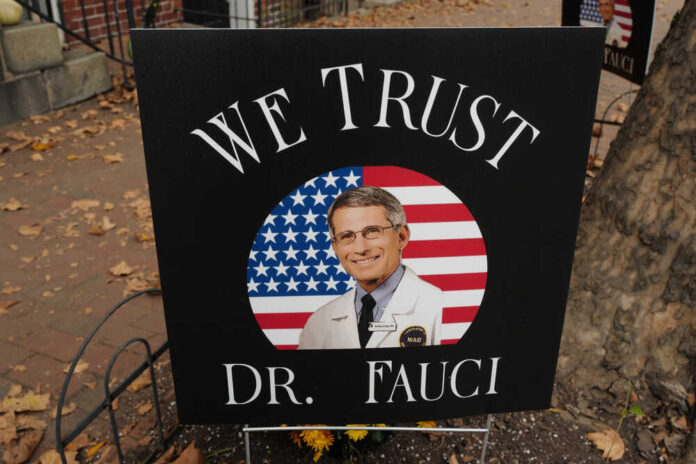Dr. Anthony Fauci has been scrutinized over his past statements regarding “gain-of-function” research funding at the Wuhan lab in China. The more significant issue now revolves around the integrity of his role as the head of the National Institute of Allergy and Infectious Diseases (NIAID) during those sessions.
A recent letter from the House Committee on Energy and Commerce to HHS Secretary Xavier Becerra brings to light concerns about whether Fauci and 13 other directors at the National Institutes of Health (NIH) might have held their positions without proper authority. Their roles were pivotal, as evidenced by the more than $25 billion in federal biomedical grants they sanctioned in 2022 alone.
The 21st Century Cures Act of 2016 stipulates that the HHS secretary personally appoints these directors. By December 2021, based on the five-year tenure established in 2016, Becerra should have renewed these appointments. Whether this responsibility was passed to the NIH director remains ambiguous, although the law’s stipulations seem definite.
Elizabeth Cohen of CNN once likened Dr. Fauci to “just like a regular guy.” If these findings hold weight, Fauci might have legally been an ordinary man with no authority to allocate billions in funds.
The situation became more convoluted when the HHS shared “Ratification of Prior Selection and Prospective Appointment: Appointment Affidavit” documents with Congress. While Becerra signed them, they suggested some backdated ratification, which federal law doesn’t permit. According to the House committee, there isn’t even a retrospective affidavit for Fauci and another director.
These uncertainties imply that officials like Fauci might have operated under an ambiguous official status. If verified, Fauci might not have had legal authority post-Dec, for basic directorial tasks. 12, 2021.
Although dismissing this as a minor oversight is tempting, billions in grants and myriad policy shifts might be called into question. In a past ruling, the U.S. Court of Appeals emphasized the significance of such appointment violations in Cody v. Kijikazi.
Moreover, decisions made by these directors could be legally questionable. If these appointments were improperly handled, they might have had no legal standing in their decision-making, drawing parallels to Lucia v. Securities & Exchange Commission in 2018.
Even though Congress underscored their importance, the Biden administration seems to have overlooked these legal requirements. Executive officials cannot neglect federal law, nor can they act without adhering to the prerequisites of their positions.
The ramifications, if these allegations are true, are enormous. Fauci and his peers could potentially be considered “zombie” directors, legally expired but still active. This could unleash a legal problem for the Biden administration if past decisions by these directors are legally contested.
Though the Biden administration believes it has adhered to the law, it hopes that retroactive appointments might deter potential challenges.
The magnitude of such an oversight, if proven, would be unparalleled. Such negligence would be a glaring administrative blunder. It’s evident that the House committee will seek and, if required, enforce answers from Becerra regarding potential breaches of federal law and potential misinformation to Congress.
Dr. Fauci, now a professor at Georgetown University and drawing a government pension of $350,000 annually, previously earned the highest federal salary at $480,654. Toward the end of his tenure, this compensation might have been for a role he legally didn’t hold.


















